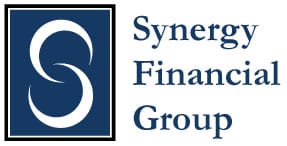The path to homeownership can seem like it’s filled with endless obstacles, but there are plenty of resources, assistance programs, and proven strategies you can leverage to make your dream of owning a new home a reality. Here are some of the most common challenges we see and steps you can take to overcome them:
Low credit score, high debt. If you’re trying to improve your credit score and reduce debt, start by pulling your free credit reports from TransUnion, Equifax, and Experian to identify any potential errors. Disputing inaccuracies has the potential to boost your score quickly. As you work to pay off your debt, make sure you consistently make payments on time and keep your credit utilization below 30%. To improve your credit score faster, consider asking a family member who has an excellent credit history to add you as an authorized user on one of their accounts.
The longer your credit history is, the better, so avoid closing old accounts even if you rarely use them. Don’t apply for new credit cards or loans right before purchasing a home to prevent unnecessary hard inquiries on your credit report. If time is of the essence, ask your mortgage lender about rapid rescoring, which can update your credit score within a few days.
Non-traditional income verification. For self-employed individuals, freelancers, and gig workers, verifying income for a mortgage can feel like a daunting task. Traditional mortgage loans require tax returns, W-2s, and pay stubs, which are not always applicable for non-traditional income earners. However, bank statement mortgages offer a viable solution. These loans allow applicants to verify income through regular bank deposits instead of conventional tax documents. By reviewing 12 to 24 months of bank statements, lenders can assess an applicant’s income.
If you regularly write off purchases through your business, this method may benefit you since your tax returns may understate your actual earnings. While bank statement mortgages often come with higher interest rates and down payment requirements, they provide a flexible alternative for those with irregular income streams.
Saving for a down payment and closing costs. Down payment assistance programs offer a valuable solution, providing grants or low-interest loans to cover part or all of your down payment and closing costs. These programs are available nationwide and are often run by state, county, and city governments. Qualifying for DPA typically requires you to be a first-time homebuyer with a low to moderate income.
You may also need to purchase a primary residence within specific local price limits. Assistance can come in various forms, including forgivable loans, deferred loans, and grants. The eligibility criteria and amount of assistance can vary, so it’s important to research local programs and consult with your loan officer.
Whatever challenges you may be facing, buying a new home is feasible with the right strategies and resources. Seek advice from financial and real estate professionals to develop a tailored plan that best suits your financial situation.
Source: Themortgagereports.com
We are ready to help you find the best possible mortgage solution for your situation. Contact Sheila Siegel at Synergy Financial Group today.







